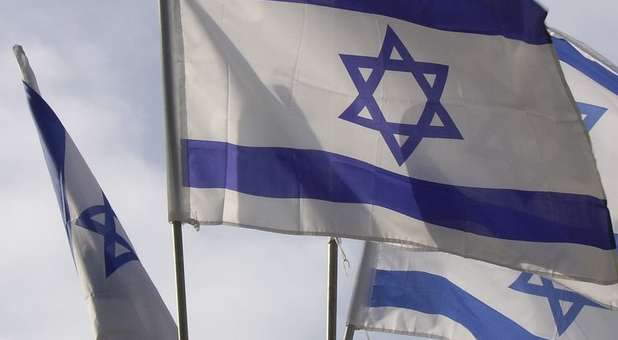‘God Is Longing to Reunite the Sons of Abraham’
What was the source of the heated argument among the National Council on the morning of May 14, 1948, just hours before the declaration of the state of Israel? The name of the state and the final wording of the declaration had been agreed upon, but the inclusion of a reference to God in the text was the last obstacle for the committee.
Ben-Gurion felt that in the final sentence of the declaration the phrase, ‘With trust in the Rock of Israel (צור ישראל), we set our hands in witness to this Proclamation …’ would satisfy both religious and secular Jews.
The spokesman for the religious parties, Rabbi Fishman-Maimon, threatened not to sign the declaration unless the words, “and its Redeemer” were to follow the “Rock of Israel.” Aaron Zisling of the left wing of the Labor Party was equally determined in the opposite direction. He said, “I cannot sign a document referring in any way to a God in whom I do not believe.”
It took Ben-Gurion most of that morning to convince both sides that the “Rock of Israel” could been taken as “God,” or it could be interpreted in a symbolic way to refer to the “strength of the Jewish people. ” In the end, Rabbi Fishman-Maimon consented and “the Rock of Israel” was kept without “and its Redeemer.”
This rift between religious and secular Jews has continued to this day, and probably is the greatest source of division among the Jewish people. This subject is a sore spot in Israeli politics, and it seems each prime minister acts like a pin-ball, bouncing from side to side trying to appease everyone but never fully succeeding.
Deep Wound
Unfortunately, such serious divisions/rifts are nothing new among the Jewish people—just think back to the time of the split kingdom after Solomon, or the severe divisions that existed among the Jewish sects during the time of Jesus and his disciples: Sadducees, Pharisees, Zealots, Essenes and more.
After the splitting of Israel and Judah in the time of King Solomon, Israel had 19 consecutive bad kings who did not please God, and they were eventually sent into exile. Judah, on the other hand, had nine good kings who sought to please God and 11 bad kings, but they also were taken into captivity.
On a number of occasions, righteous Judah fought against wicked Israel—their own brothers—as a form of God’s punishment (1 Kings 15:9-16). There were also times when they made alliances, but they usually didn’t end well due to corruption and compromise.
Right before Judah was taken captive by the Assyrians, God spoke through Ezekiel the prophet saying He would one day join Judah and Israel, and they would be one in His hand (Ezek. 37:15-28). The context of this joining includes God gathering the Jewish people into their own land, cleansing them of their sin and setting one King over them forever. Of course, this has yet to happen.
Proactive Participation
Recently, in prayer, I’ve sensed the heart of the Father longing to unite His sons again. This also includes all of Abraham’s sons of faith, Jews and Gentiles who have put their trust in Yeshua as King and Messiah. A unified people or nation is unstoppable (Gen. 11:5-6). Imagine what God would do through a unified righteous people from every tribe and tongue. We live in a day where this joining together is under much attack, and the call to pray for this unity is urgent.
Let us continue praying for Israel’s division to be healed through union with their Messiah. And let’s keep agreeing and cooperating with Yeshua’s prayer in John 17 for oneness in His global body, and not stop until He gets what He has desired and asked for! {eoa}
Cody Archer, along with his wife, Liat, help lead the youth group at Ahavat Yeshua and work together in Revive Israel’s international department.
This article originally appeared at reviveisrael.org.














































